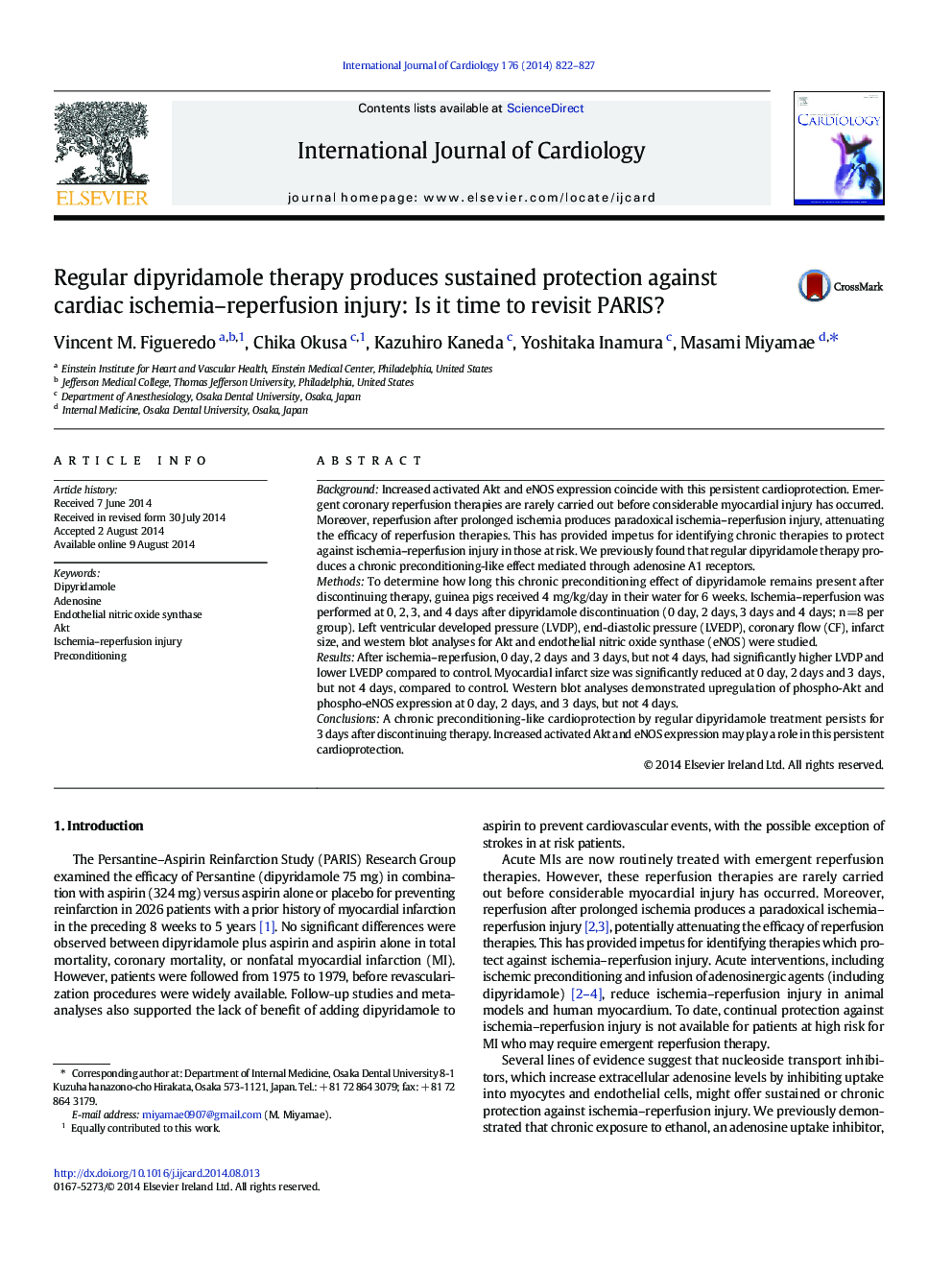| کد مقاله | کد نشریه | سال انتشار | مقاله انگلیسی | نسخه تمام متن |
|---|---|---|---|---|
| 5969310 | 1576178 | 2014 | 6 صفحه PDF | دانلود رایگان |

- Regular dipyridamole therapy produces protection against ischemia-reperfusion injury.
- This protection last 3Â days after discontinuing dipyridamole.
- Increased Akt and eNOS expression coincide with this continued cardioprotection.
BackgroundIncreased activated Akt and eNOS expression coincide with this persistent cardioprotection. Emergent coronary reperfusion therapies are rarely carried out before considerable myocardial injury has occurred. Moreover, reperfusion after prolonged ischemia produces paradoxical ischemia-reperfusion injury, attenuating the efficacy of reperfusion therapies. This has provided impetus for identifying chronic therapies to protect against ischemia-reperfusion injury in those at risk. We previously found that regular dipyridamole therapy produces a chronic preconditioning-like effect mediated through adenosine A1 receptors.MethodsTo determine how long this chronic preconditioning effect of dipyridamole remains present after discontinuing therapy, guinea pigs received 4Â mg/kg/day in their water for 6Â weeks. Ischemia-reperfusion was performed at 0, 2, 3, and 4Â days after dipyridamole discontinuation (0Â day, 2Â days, 3Â days and 4Â days; n=8 per group). Left ventricular developed pressure (LVDP), end-diastolic pressure (LVEDP), coronary flow (CF), infarct size, and western blot analyses for Akt and endothelial nitric oxide synthase (eNOS) were studied.ResultsAfter ischemia-reperfusion, 0Â day, 2Â days and 3Â days, but not 4Â days, had significantly higher LVDP and lower LVEDP compared to control. Myocardial infarct size was significantly reduced at 0Â day, 2Â days and 3Â days, but not 4Â days, compared to control. Western blot analyses demonstrated upregulation of phospho-Akt and phospho-eNOS expression at 0Â day, 2Â days, and 3Â days, but not 4Â days.ConclusionsA chronic preconditioning-like cardioprotection by regular dipyridamole treatment persists for 3Â days after discontinuing therapy. Increased activated Akt and eNOS expression may play a role in this persistent cardioprotection.
Journal: International Journal of Cardiology - Volume 176, Issue 3, 20 October 2014, Pages 822-827